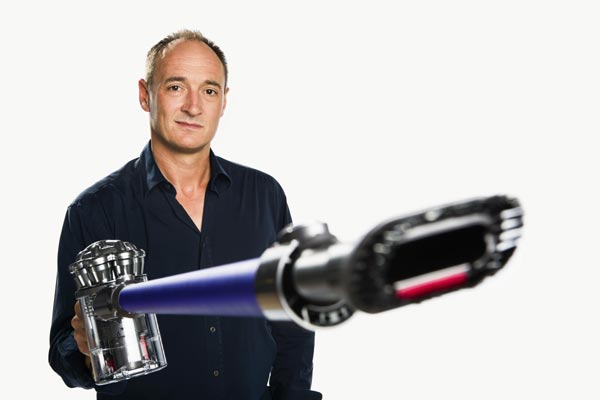Dyson CEO: PM2.5 and airborne pollutants aren't a 'Chinese problem'
Updated: 2014-12-01 15:16
By Wang Sining(chinadaily.com.cn)
|
|||||||||||
|
 |
|
Dyson CEO Max Conze [Photo provided to chinadaily.com.cn] |
China Daily website interviewed Dyson CEO Max Conze at the end of November, 2014. Conze discussed his solution about PM2.5 and revealed Dyson's strategy in China's market.
More and more people are talking about PM2.5, what's your view?
PM2.5 and airborne pollutants aren't a ‘Chinese problem'. It's a worldwide problem, but one well understood in China. Don't forget there's smog in London and Paris, too.
Staying inside and shutting windows might alter our PM2.5 exposure compared to what's outside, but harmful particles still creep indoors. A study carried out in the US estimated that we spend approximately 90 percent of our time indoors where levels of pollutants can be up to 100 times higher than outdoor levels. Turning the home environment into a safe haven requires more than just purifiers; dangerous particles in the air can settle on floors and surfaces potentially causing asthma, respiratory problems or worse. Removing these particles from the home is essential.
Using the expertise of Dyson scientists and an in-house microbiology laboratory, Dyson has developed vacuum cleaners that capture up to 99.99 percent of particles as small as PM0.3 – seven times smaller than the hazardous PM2.5. That's why all Dyson cylinder machines are approved by the British Allergy Foundation and the Swiss Allergy Centre for use by allergy and asthma sufferers.
Which market do you think is the most important to Dyson?
The US, Japan and the UK are Dyson's largest markets – while Asia offers great growth potential. Dyson sees China as having the opportunity to be just as big. In November 2012, James Dyson officially launched Dyson in Shanghai, since then Dyson technology has spread across China to 240 stores across 45 cities, selling in an area nearly 40 times the size of the UK.
Dyson machines are sold in 72 countries, and 85 percent of machines are sold outside the UK. On average one machine is sold every five seconds worldwide.
What's your strategy in China's market?
Our strategy begins with new technology - always. We set out to solve the problems others ignore, developing new and better technology. We've just announced a plan to ramp up our spending in R&D to £1bn over the next four years, developing 100 new products along the way. This pipeline of technology will increasingly become China orientated; there's a particular appetite for connected machines and healthier, more hygienic technologies and our engineers are busy inventing. We've just invested in sending a Dyson engineer to live and research in China to help us in achieving our pipeline.
Related Stories
Beijing to monitor PM2.5 concentration in schools 2014-10-09 09:08
PM2.5 density in Chinese cities drops 2014-10-29 15:40
Beijing on target for reduction in PM2.5 2014-09-26 08:07
Smog to make a comeback this week 2014-11-24 19:33
Thick smog forecast for northern China 2014-11-24 15:54
Today's Top News
Chinese consumers' online choices proliferate
CPC sends out inspectors in new round of anti-graft checks
Swiss voters reject gold, immigration proposals
Sarkozy wins French UMP party leadership
Ireland pushes EU drive against smoking
One-child allowances continue with second birth
Editorial: Get HKSAR back on track
Women still outnumbered in top jobs
Hot Topics
Lunar probe , China growth forecasts, Emission rules get tougher, China seen through 'colored lens', International board,
Editor's Picks

|

|

|

|

|

|





